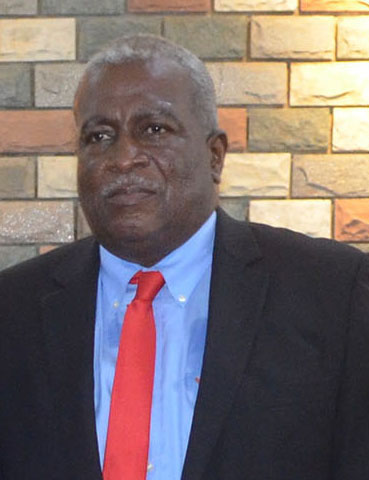Prime Minister Mark Phillips who has responsibility for the telecommunications sector last night announced the historic end of the 30-year monopoly which had been held by the Guyana Telephone and Telegraph (GTT).
In a statement, the PM said, “I am pleased to announce that the Government of Guyana has issued Commencement Orders fully bringing into force the Telecommunications Act 2016 (the “Act”) and the Public Utilities Commission Act 2016, within two months of assuming office. The commencement of these Acts is nothing less than historic, aligning Guyana’s telecommunications regime to those found in other countries in the world, including most Caribbean countries, ending a thirty-year-old anti-competitive telecommunications monopoly, that has left Guyanese weary, frustrated and lagging behind in the telecommunications arena”.
He said that it is anticipated that Guyanese will feel an immediate positive impact from the implementation of these laws which create a modern and competitive environment for telecommunications, and which will immediately result in greater choices, better quality of service and lower prices for consumers.
At the same time, he said that it will ensure that all operators continue to enjoy all benefits conferred under the old legislative regime.
“This decisive step is consistent with our Government’s vision of furthering national and regional social and economic development. The legislation specifically addresses the expansion of telecommunications networks and services into unserved and underserved areas through the institution of a new universal access/universal services programme”, the PM stated.
He noted that the legislation creates a “clear, harmonised framework and a level playing field for the sector that is currently lacking, and which are characterised by transparency and non-discrimination in the issuance and monitoring of licences and authorisations to use the spectrum, seamless interconnection and access between and among telecommunications networks and services, and price regulation where required to ensure competition and at the same time guarantees equal treatment of stakeholders, to the ultimate benefit and protection of consumers”.
The Telecommunications Act 2016 was first laid by the PPP/C Government in the 9th Parliament in August 2011, and laid again in the 10th Parliament in 2012, after extensive deliberations with both the public and operators. During the life of both Parliaments, the Act enjoyed commendable bipartisan support, Phillips said. He pointed out that it spent considerable time before a select committee, chaired by Carl Greenidge, and included Former Prime Minister Samuels Hinds, and then Minister Mohamed Irfaan Ali.
He said that the Act was finalised before the 2015 elections and was enacted by the APNU+AFC Government in 2016 by Minister of Public Telecommunications Catherine Hughes, again with bipartisan support.
Phillips said that although the benefits of the Act were well known to the APNU+AFC Coalition, for some inexplicable reason in 2018 and again in 2019, it only brought a few sections of the Act into force, frustrating the intent and objective of the Act.
“No doubt, the effects of liberalisation will be felt countrywide at a time when enhanced, universal and competitive access to telecommunications is pivotal to Guyana’s developmental trajectory. In face of the Covid-19 crisis, it assumes even greater significance”, Phillips said.
He added that the Government remains ready and willing to work with all stakeholders to ensure that every Guyanese has affordable access to quality and modern services which they so badly deserve.
The monopoly agreement was signed in 1990 by the Desmond Hoyte administration with the US Virgin Islands-based Atlantic Tele Network (ATN). ATN held 80 percent of the shares while the state held 20%. The state’s share was later sold to a Chinese company. The monopoly was for an initial period of 20 years but neither the PPP/C nor APNU+AFC ended it until yesterday’s announcement.
Over the period of the monopoly there were significant improvements in the telecommunications system but frequent squabbles between ATN/GTT and the regulatory commission over rates and the 15% rate of return that ATN had insisted that it was entitled to. Over the years, other service providers particularly Digicel have lamented the ongoing monopoly.






